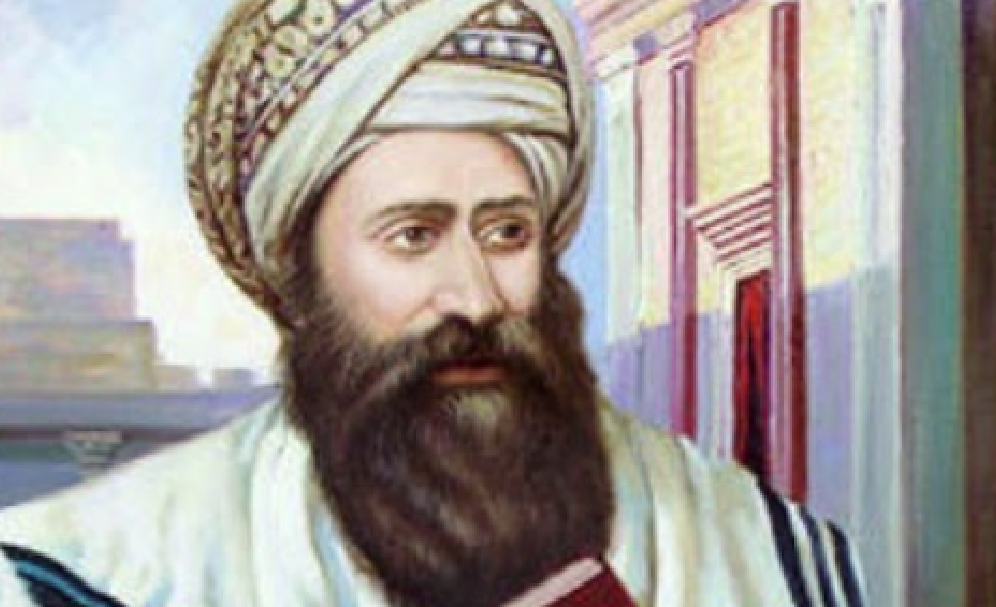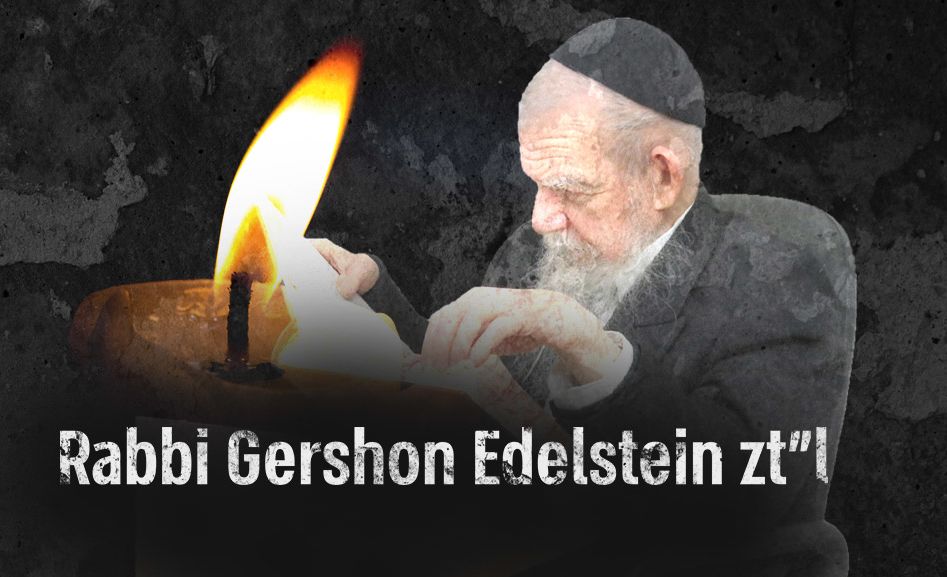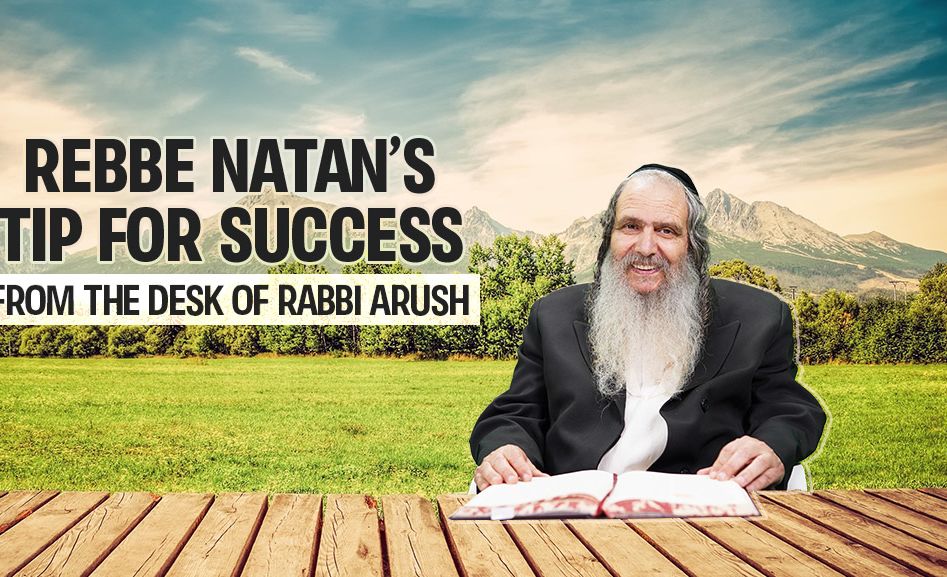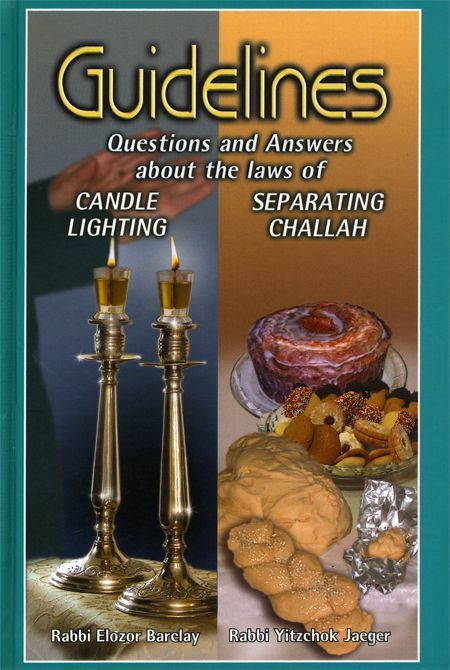
Close-up with Rav Arush
We often read his articles and books, but there's something very special seeing Rabbi Shalom Arush in person. Learning from our teacher this way makes a much deeper impression…

A big highlight of my recent trip to Uman for Rosh Hashanah was the special visit to our group by Rabbi Shalom Arush on the second night of the holiday.
Rabbi Arush received a joyful ovation from us as he entered the room. As he sat down in the front, he was beaming with a big smile on his face. He told us how wonderful it was to be here with his students.
True life = Closeness to Hashem
He said that on Rosh Hashanah we pray for life, not just physical life but also real spiritual life, which means closeness to Hashem. Positive thoughts and deeds bring us closer to Hashem and negative ones separate us from Him.
An example of negative behavior is cigarette smoking, which he strongly condemned. He said that the Hebrew word for cigarette, “sigarya”, actually means closed off from Hashem. This separation principle applies to any addiction, dysfunctional habit or character flaw. If left unattended these create an ever- increasing distance between us and our Creator.
Rabbi Arush said that we can successfully address these flaws via our daily hour of personal prayer. We dedicate a half hour of our daily meeting with Hashem to request His help in overcoming one flaw at a time. In his books, he emphasizes the teaching of our Sages that if you try to seize too much you end up empty- handed. This is because your efforts are spread too thin and the overall impact is dissipated. In contrast, the focused and sustained targeting of one goal at a time mobilizes your best efforts and elicits Hashem’s compassionate assistance.
We absolutely need a big helping hand from Hashem. We can't possibly defeat the Evil Inclination and overcome years of dysfunctional thinking and deeply ingrained habits on our own.
Relax and speak what’s on your mind
Rabbi Arush said one person told him, “I can’t imagine praying for an hour a day; I can only talk 1 or 2  minutes right now.” Rabbi Arush told him, “no problem; you can say the same thing 50 times!” We all got a laugh out of this but Rabbi Arush said that he was conveying an important principle: we do not need to be concerned about composing new verbiage each time we pray. Repeating the same thing over and over again is perfectly fine. (I think this shows how much Hashem loves us, since He doesn’t get bored!)
minutes right now.” Rabbi Arush told him, “no problem; you can say the same thing 50 times!” We all got a laugh out of this but Rabbi Arush said that he was conveying an important principle: we do not need to be concerned about composing new verbiage each time we pray. Repeating the same thing over and over again is perfectly fine. (I think this shows how much Hashem loves us, since He doesn’t get bored!)
The main thing is desire. We need the desire to improve and sincerely ask for the help of Hashem. He'll be only too happy to help us do what He himself wants us to accomplish.
Rabbi Arush quoted the Mishnah which says that one hour of repentance in this world is greater than all the pleasures of the world to come. This certainly applies to our one hour of daily prayer, self-assessment and repentance each day.
The parable of five sons
He conveyed a parable of a man and his five sons. The first son was angry whenever the father reprimanded him and refused to comply. The second son complied with the father's directives but did so with great resentment. The third son fulfilled his father’s instructions because he knew what the father was saying was for his own good. The fourth son not only did what his father asked; he also thanked him for the guidance, knowing that it was given in a spirit of helpfulness and love.
There's one son, however, at an even greater level than this one. This son doesn't wait for the father to speak to him when he does something wrong. He immediately goes to his father and confesses that he did something that was neither appropriate nor in keeping with the way he was raised. He sincerely apologizes that he caused his father pain. He pledges to try to do better and asks for his father's help to improve.
How can a parent do anything but love a son like this? He’ll not only forgive him; he’ll also give the son a reward. The father says, “if only my other sons would come to talk with me. If only they knew how much I love them, even the ones who resent me.” We should all try to be like the fifth son and provide joy to our Father in Heaven by coming close to Him and sharing our difficulties, hopes and dreams.
Questions and answers
We subsequently had a question and answer session covering sensitive issues of Shalom Bayis (peace in the home). Rabbi Arush gave us insights based on his book Garden of Peace. This book not only can transform marriages; it is also valuable for single men. There is ample advice on searching for a mate and preparing the foundation for a wonderful marriage.
The power of personal presence
This was an intimate, up-close and personal session. I felt as if we were in Rabbi Arush’s living room and he was a father giving advice to his sons.
We often read his articles and books, but there's something very special about seeing him in person. Learning from our teacher this way makes a much deeper impression and I am very grateful we had this opportunity. By following his advice, may we improve our service to Hashem in the coming year. When we come back to Uman next time, may we be better people at higher levels than we were this past year.










Tell us what you think!
Thank you for your comment!
It will be published after approval by the Editor.